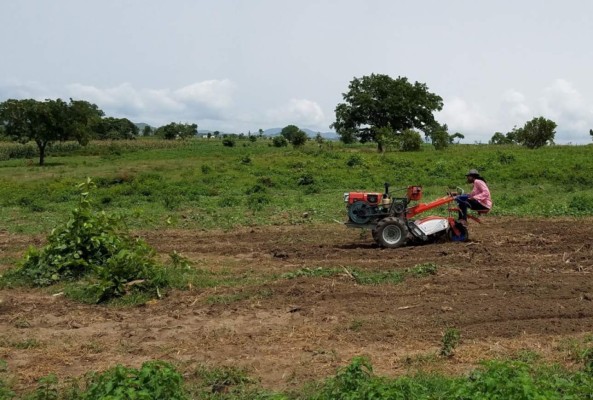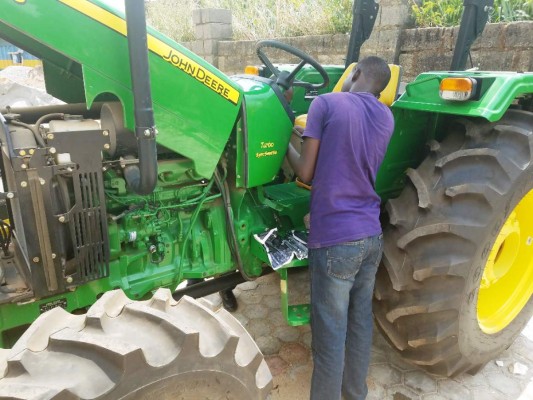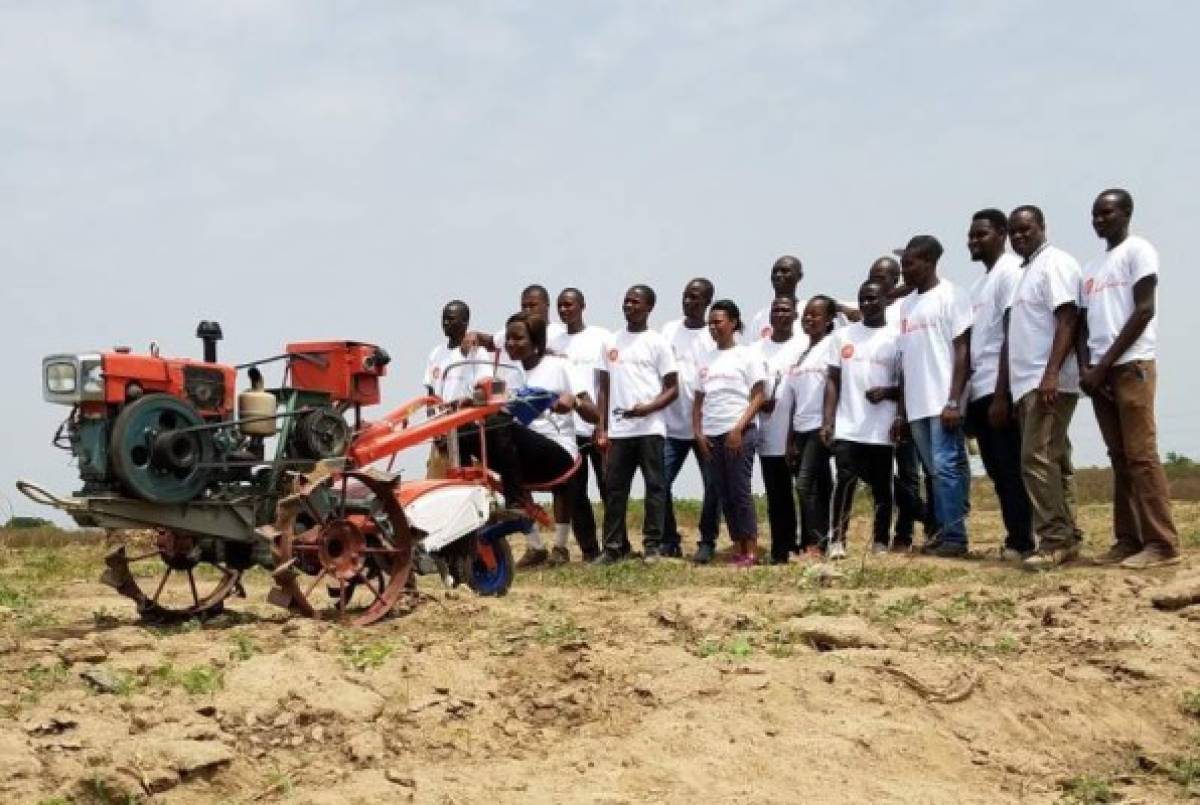For small-scale farmers in Nigeria, especially in the northern parts of the country, getting tractors to use on their farmlands to boost their yield has always been difficult.
Many farmers can't afford to buy one due to the high cost, while the country's federal government, which is the major supplier of tractors, is not able to meet more than four percent of their requirements. Africa has less than 50 agricultural tractors per 100 square kilometres of arable land, according to the Food and Agriculture Organisation (FAO), which ranked Nigeria 132 out of 188 countries surveyed on agricultural mechanisation. Farm sizes in Nigeria are small, making it difficult for individual farmers to own a tractor.
However since mid-2014, the introduction of the Hello Tractor project has been addressing the prevalent problem of crippling poverty and poor crop yields amongst small-scale farmers. Hello Tractor is the brainchild of Jehiel Oliver, an American who developed the idea while working as a global finance consultant focused on SMEs and agricultural industries at Aya Consulting in the United States.
He relocated to Nigeria to implement the project; a social enterprise that improves food and income security by facilitating Nigerian farmers with the right tools to efficiently harvest their land. Hello Tractor promotes collaborative consumption by building a network of “Smart Tractor” owners, enabling small-scale farmers to request and pay for tractor services via SMS and mobile money, as and when they need specific services.
On what makes the solution unique, the operators say, 'Our powerful booking system allows farmers to conveniently request, schedule and prepay for tractor services, from nearby Smart Tractor owners, through SMS messaging and mobile money. Once service is completed, the pre-payment is automatically released to the Smart Tractor owner.'
Since it was launched in mid-2014, farmers who participated in the beta period have reportedly seen their yields increase by 200 percent using a machine that’s 40 times faster than manual labor. 'We have designed an innovative, low-cost “Smart Tractor” specifically for small farmers’ unique needs,” remarks Oliver, the founder of Hello Tractor.
“The smart tractor is a two-wheeled tractor with GPS antennae that allows us to track its usage and telematics, which collects and transfers data in no Internet areas such as the rural areas,” Oliver adds.
According to Oliver, each tractor on the platform reaches an approximate 250 Ha of farmland annually, which is substantial in Nigeria where farmers own, on average, just over one hectare of land.
With one of the fastest growing populations in the world, and huge pressure on the employment market to provide new jobs, optimizing Nigeria’s agricultural industry is key to combatting youth unemployment for the next generation.
“Despite the profitability of agriculture in Nigeria, there remains a substantial risk (both real and perceived) preventing banks to engage more deeply,” remarks Oliver. To address this issue Hello Tractor also coordinates low-cost financing to help facilitate the purchase of a Smart Tractor.
'Equipped with various attachments, owners can tailor its use for a variety of crops and stages of the production cycle, allowing them to serve their customers throughout the year. The GPS antenna allows Hello Tractor to track its usage and gather data on location, market trends, and uptake,' Oliver explained.
'At the beta phase we’re prioritizing land preparation because first of all, it's the first stage of production,' Oliver said. 'It's also the most labor intensive. It takes about 40 days of manual labor to prepare the land. Our tractors do it in eight hours.'
On the impact so far, Oliver told The Nation that, 'Farmers are reporting that having access to tractor services saves them money on land preparation while removing the labor constraints that have prevented them from planting the land that they have access to.'
Hello Tractor has just been launched in Kenya with a pilot this year. Oliver believes the results there should be as promising as those in Nigeria.
http://www.hellotractor.com/


























